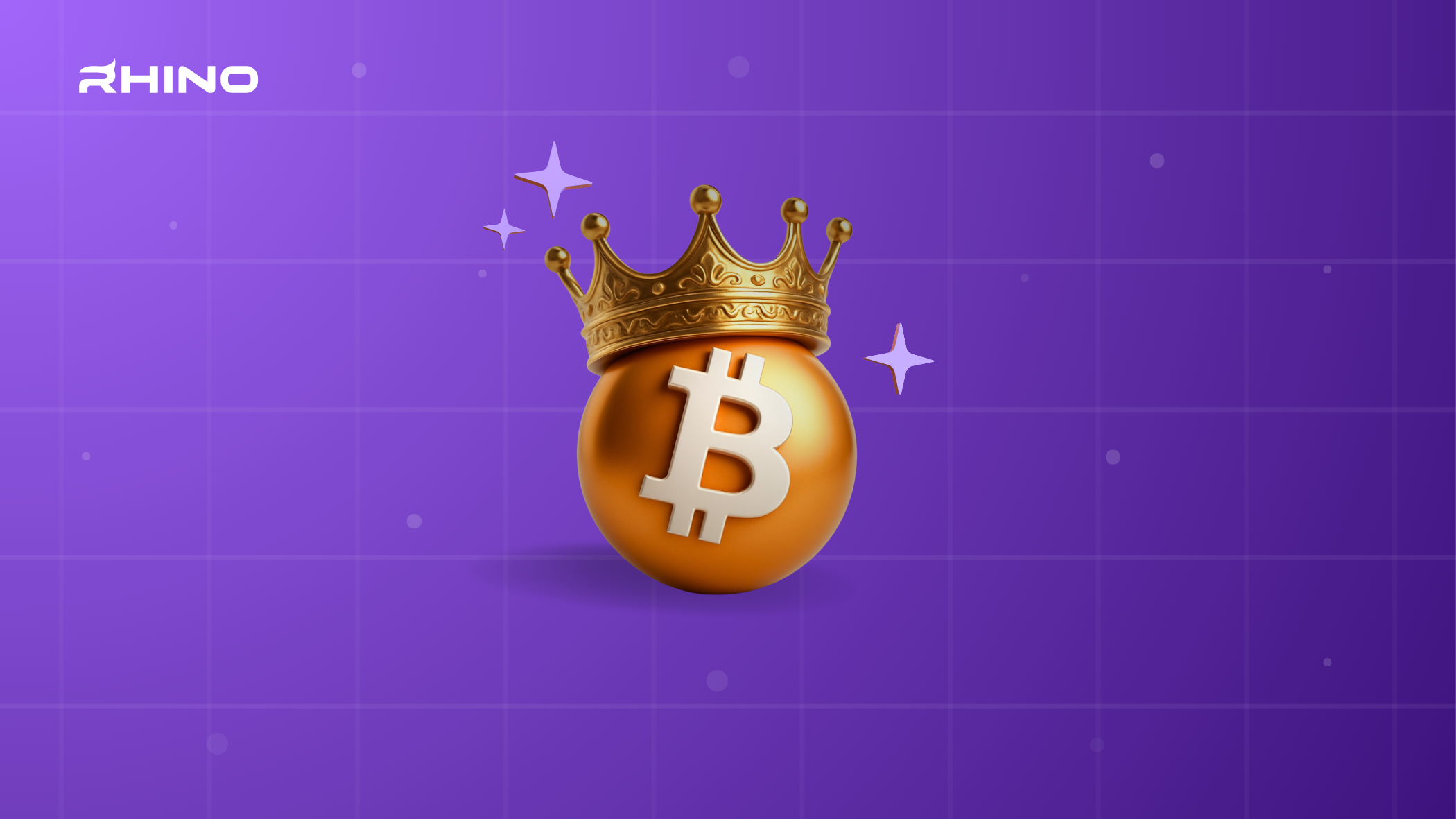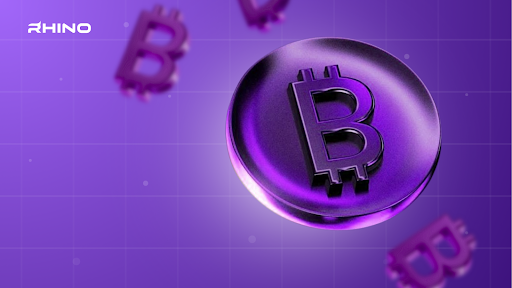The Best Bitcoin Lightning Wallets [2024]
Explore the best Bitcoin Lightning wallets of 2024, from beginner-friendly to advanced. Learn about custodial vs non-custodial wallets, U.S. regulatory impacts, and the top choices for your needs
![The Best Bitcoin Lightning Wallets [2024]](https://cdn.prod.website-files.com/6512fd5abf0332ece9702198/670924e0eff4fd9c5312081c_Bitcoin%20Lightning%20Wallets.png)
As more users adopt Lightning, choosing the right wallet becomes increasingly important. With numerous Bitcoin Lightning wallets available in 2024, from beginner-friendly interfaces to wallets designed for developers, the right choice depends on needs and technical skills.
This article explores the Bitcoin Lightning Network, wallet types, challenges, regulatory impacts in the U.S., and the best wallets for different user levels.
Bitcoin Lightning Network: An Overview
The Lightning Network is a second-layer solution built on top of Bitcoin’s main layer, designed to enable quick, low-cost transactions by operating off-chain. It works through a network of nodes that maintain payment channels. A channel is opened between two parties, allowing them to transact without each transaction being recorded on the main Bitcoin blockchain.
When a user makes a payment through the Lightning Network, an invoice is generated, detailing the amount to be paid. This payment flows through the network along payment routes, often involving several intermediary nodes. The Lightning Network dramatically increases Bitcoin's scalability, reducing fees and transaction times, and making it suitable for smaller, day-to-day transactions.
A Simple Graph of The Lightning Network

Source: Bitpanda
Custodial vs. Non-Custodial Wallets
When selecting a Lightning wallet, it's important to decide between a custodial or non-custodial wallet, based on who controls the private keys.
- Custodial Wallets: Managed by third-party services that control your private keys, custodial wallets are beginner-friendly but require trusting the provider. Popular options include Wallet of Satoshi and CashApp, which offer simple interfaces but less control over your funds.
- Non-Custodial Wallets: These wallets give users full control of their bitcoin and private keys, offering more security and privacy examples are Phoenix and Breez Wallet.
Best Wallets for Each User

Source: Blink
Challenges of Running Non-Custodial Bitcoin Lightning Wallets
Although non-custodial wallets give you full access and control of your bitcoin, they also come with certain complexities. Managing a non-custodial Lightning wallet often involves handling channel liquidity, meaning that users must ensure they have enough balance to both send and receive bitcoin over the network.
Running a Lightning node to support your wallet requires technical expertise, as well as costs for hardware, electricity, and managing Bitcoin channels, especially if you're routing payments through the network.
For many users, these hurdles can seem intimidating. However, non-custodial wallets like Phoenix and Zeus have made significant strides in reducing the technical burden by automating much of the channel management behind the scenes.
The Battle for Wallets in the U.S.
Recent regulatory changes in the U.S. have started to impact the availability of certain Lightning wallets. Due to increasingly stringent rules around digital financial services, some wallet providers have decided to exit the U.S. market altogether.
For instance, Wallet of Satoshi announced it would no longer serve U.S.-based users, citing an unfavorable regulatory environment. Similarly, Phoenix, a non-custodial wallet, raised concerns about the growing compliance burdens in the U.S., and on May 3rd, 2024 it quit the US market. These regulatory challenges underscore the need for decentralized, non-custodial solutions that prioritize user control and privacy.
Wallet of Satoshi Leaves US Market

Source: X
Phoenix Wallet Decided to Remove the App From US App Stores

Source: X
Best User-Friendly Wallets for Beginners
For those new to Bitcoin and the Lightning Network, simplicity is key. Fortunately, several wallets offer beginner-friendly options that make onboarding as smooth as possible.
- Wallet of Satoshi: One of the most user-friendly custodial Lightning wallets, Wallet of Satoshi takes care of all the technical aspects of Lightning payments, making it ideal for first-time users. However, it is no longer available to U.S. customers due to regulatory challenges.
- CashApp: Offers beginner-friendly, custodial access to the bitcoin Lightning Network, allowing users to quickly send and receive bitcoin with low fees. It's designed for everyday transactions, simplifying the process for new users.
- Strike: Provides a custodial, beginner-friendly way to use the Lightning Network for fast, low-cost Bitcoin payments and remittances. Users can easily send bitcoin and convert it to fiat, making it ideal for cross-border transfers.
Wallets for Advanced Users and Developers
For experienced Bitcoin users and developers, certain wallets provide the flexibility and functionality needed to navigate the Lightning Network with more control:
- Phoenix: A non-custodial wallet that manages many technical details automatically while providing full control over your funds. Phoenix is one of the most popular options for users seeking a balance between ease of use and advanced functionality.
The only disadvantage of Phoenix wallet is its relatively high fees. The wallet charges 0.4% on all outgoing transactions. For example, if you send 1,000,000 sats, you’ll end up paying 4,000 sats in fees, which is higher than regular on-chain fees. - Ride the Lightning (RTL): A web-based Bitcoin Lightning Network management tool that allows users to efficiently manage their node and liquidity. It offers an intuitive interface for handling channels, making payments, and managing inbound and outbound liquidity. Unlike Phoenix, it would need you to run your own Lightning node.
- Zeus: Designed for users running their own Bitcoin and Lightning nodes, Zeus offers full control over node management and payment routing, making it ideal for developers and those who require extensive node access on the go.
Different Platforms
When choosing a Lightning wallet, the choice between mobile and web versions plays a crucial role. Some wallets cater to specific devices, while others offer cross-platform access.
Mobile wallets tend to be more secure, while web wallets offer better access across multiple platforms.
- Mobile Wallets: Mobile wallets are the most convenient for users who need to make quick, on-the-go transactions. Wallets like Phoenix and Breez are optimized for mobile use, providing users with the flexibility to send and receive Lightning payments directly from their smartphones.
- Web Wallets: Newer web-based wallets like Alby offer flexibility by working seamlessly on both desktop and mobile platforms.
Alby allows users to interact with the Lightning Network via browser extensions, making it easy to integrate bitcoin payments into web activities.
Conclusion
In 2024, the Bitcoin Lightning wallet ecosystem offers a wide range of options, catering to both new users and seasoned Bitcoin enthusiasts. From beginner-friendly custodial wallets like Wallet of Satoshi to advanced non-custodial solutions like Phoenix and Nunchuck, there's a wallet for every type of user.
However, ongoing regulatory challenges, particularly in the U.S., are reshaping the wallet landscape, making it more crucial than ever for Bitcoiners to consider their options carefully.



